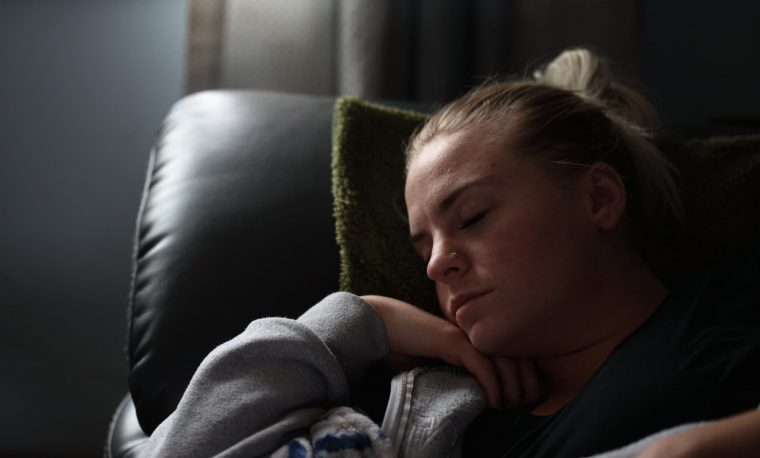What is post-traumatic stress disorder (PTSD)?
Post-traumatic stress disorder (PTSD) is a mental health condition that can occur following a traumatic experience. It can be bought on when a person has either experienced or witnessed a terrifying event in which there was serious physical harm or threat. The condition is characterised by intense feelings of fear, anxiety, helplessness and horror, however, can cause a range of physical, mental and emotional symptoms.
Most people, in time, get over experiences like this without needing trauma treatment. In some people though, traumatic experiences can have serious ongoing consequences on health. This is called post-traumatic stress disorder (PTSD) and requires professional help to be managed.
What causes PTSD?
PTSD can start after any traumatic event or a situation that provoked fear, helplessness or horror.
Some typical traumatic events that might trigger PTSD include:
- Serious road accidents
- Sexual or physical assault
- Military combat
- Having been involved in a hostage situation
- Terrorist attack
- Natural or man-made disasters
- Being diagnosed with a life-threatening illness
- When a family member or close friend experiences an injury or violent death
- Childbirth
When does post-traumatic stress disorder (PTSD) start?
The symptoms of PTSD can start after a delay of weeks or even months after the event. They usually appear within 6 months of a traumatic event happening.
Signs and symptoms of post-traumatic stress disorder (PTSD)
Psychological signs and symptoms of PTSD may include:
- Constantly reliving the event: Sufferers may constantly relive the trauma of an event, through flashbacks, hallucinations, nightmares. It can also appear
- Avoidance: Alternatively, some sufferers may choose to avoid places, people, thoughts or situations that may remind them of the traumatic event. This can lead to feelings of isolation.
- Extreme alertness or hypervigilance: This can include feeling ‘jumpy’, easily hurt, upset or angry, having disturbed sleep and finding it hard to concentrate on medial tasks
- Interpersonal issues: Sufferers may find it difficult to maintain relationships or friendships. They may feel unable to trust anyone, or that no one will understand their pain.
- Loss of sex drive
- Inability to enjoy things they used to before the event
Physical signs and symptoms of PTSD may include:
- Sweating
- Nausea
- Trembling
- Muscle aches and pains
- Diarrhoea
- Irregular heartbeats
- Headaches
- Lethargy
Why is PTSD often not recognised?
- None of us likes to talk about upsetting events and feelings
- We may not want to admit to having symptoms, because we don’t want to be thought of as weak or mentally unstable
- Doctors and other professionals are human. They may feel uncomfortable if we try to talk about gruesome or horrifying events
- People with PTSD often find it easier to talk about the other problems that go along with it – headache, sleep problems, irritability, depression, tension, substance abuse, family or work-related problems
Treatment for trauma and post-traumatic stress disorder (PTSD) at Nightingale Hospital
At Nightingale Hospital, trauma and PTSD treatment can be as an outpatient, day patient or inpatient.
We have a number of consultant psychiatrists and therapists that specialise in PTSD and trauma. It is vital you find a trauma specialist that you can trust and work with on your recovery.
Our approach to treating PTSD at Nightingale Hospital London combines individualised treatment programmes based on current clinical evidence.
Treating PTSD with psychotherapy
All the effective psychotherapies for PTSD focus on the traumatic experiences that have produced your symptoms rather than your past life. You cannot change or forget what has happened. You can learn to think differently about it, about the world, and about your life.
You need to be able to remember what happened, as fully as possible, without being overwhelmed by fear and distress. These therapies help you to put words to the traumatic experiences that you have had. By remembering the event, going over it and making sense of it, your mind can do its normal job, of storing the memories away and moving on to other things. If you can start to feel safe again and in control of your feelings, you won’t need to avoid the memories as much. Indeed, you can gain more control over your memories so that you only think about them when you want to, rather than having them erupt into your mind spontaneously.
All these treatments should be given by specialists in the treatment of PTSD. The sessions should be at least weekly, every week, with the same therapist, and should usually continue for 8-12 weeks. Although sessions will usually last around an hour, they may sometimes last up to 90 minutes.
- Cognitive behavioural therapy (CBT) is a way of helping you to think differently about your memories so that they become less distressing and more manageable. It will usually also involve some relaxation work to help you tolerate the discomfort of thinking about the traumatic events. For further information, see our factsheet on CBT.
- EMDR (Eye movement desensitisation & reprocessing) is a technique that uses eye movements to help the brain to process flashbacks and to make sense of the traumatic experience. It may sound odd, but it has been shown to work.
- Group therapy involves meeting with a group of other people who have been through the same, or a similar traumatic event. The fact that other people in the group do have some idea of what you have been through can make it much easier to talk about what has happened.
- Well-being and physical therapies can help to control the distress of PTSD. They can also reduce hyperarousal or the feeling of being “on guard” all the time. These therapies include physiotherapy and osteopathy, but also complementary therapies such as massage, acupuncture, reflexology, yoga, meditation and tai chi. They all help you to develop ways of relaxing and managing stress.
Treating PTSD with medication
SSRI antidepressant tablets will both reduce the strength of PTSD symptoms and relieve any depression that is also present. They will need to be prescribed by a doctor.
This type of medication should not make you sleepy, although they all have some side effects in some people. They may also produce unpleasant symptoms if stopped quickly, so the dose should usually be reduced gradually. If they are helpful, you should carry on taking them for around 12 months. Soon after starting an antidepressant, some people may find that they feel more:
These feelings usually pass in a few days, but you should see your doctor regularly. If these don’t work for you, tricyclic or MAOI antidepressant tablets may still be helpful.
Occasionally, if someone is so distressed that they cannot sleep or think clearly, anxiety-reducing medication may be necessary. These tablets should usually not be prescribed for more than 10 days or so.
Effectiveness of treatments
At present, there is evidence that EMDR, cognitive behavioural therapy and antidepressants are all effective. There is not enough information for us to say that one of these treatments is better than another. There is no evidence that other forms of psychotherapy or counselling are helpful to PTSD.
Which treatment first?
The National Institute for Clinical Excellence (NICE) guidelines suggest that trauma-focused psychological therapies (CBT or EMDR) should be offered before medication, wherever possible.
Helping yourself with PTSD
How can I help myself if I’m struggling with PTSD?
- Keep life as normal as possible
- Get back to your usual routine
- Talk about what happened to someone you trust
- Try relaxation exercises
- Go back to work
- Eat and exercise regularly
- Go back to where the traumatic event happened
- Take time to be with family and friends
- Drive with care – your concentration may be poor
- Be more careful generally – accidents are more likely at this time
- Speak to a doctor
- Expect to get better
What shouldn’t I do if I’m struggling with PTSD?
- Beat yourself up about it – PTSD symptoms are not a sign of weakness. They are a normal reaction, of normal people, to terrifying experiences
- Bottle up your feelings. If you have developed PTSD symptoms, don’t keep it to yourself because treatment is usually very successful
- Avoid talking about it
- Expect the memories to go away immediately, they may be with you for quite some time
- Expect too much of yourself. Cut yourself a bit of slack while you adjust to what has happened
- Stay away from other people
- Drink lots of alcohol or coffee or smoke more
- Get overtired
- Miss meals
- Take holidays on your own
How do you know when you have ‘gotten over’ a traumatic experience?
- Think about it without becoming distressed
- Not feel constantly under threat
- Not think about it at inappropriate times
Advice for loved ones of someone suffering from trauma or PTSD
If someone you love is suffering from PTSD, you should:
- Watch out for any changes in behaviour – poor performance at work, lateness, taking sick leave, minor accidents
- Watch for anger, irritability, depression, lack of interest, lack of concentration
- Take time to allow a trauma survivor to tell their story
- Ask general questions
- Let them talk, don’t interrupt the flow or come back with your own experiences
If someone you love is suffering from PTSD, you shouldn’t:
- Tell them you know how they feel, especially if you don’t
- Tell them they’re, “lucky to be alive.”
- Minimise their experience by saying things such as, “It’s not that bad, surely…”
- Suggest that they just need to “pull themselves together”
Useful resources
Related treatments
- Clinical psychology
- Acceptance and commitment therapy (ACT)
- Art therapy
- Cognitive analytic therapy (CAT)
- Cognitive behavioural therapy (CBT)
- Counselling
- Eye movement desensitisation and reprocessing (EMDR)
- Psychotherapy
- Sleep therapy
- Specialist therapies
- Well-being therapies
- Drama therapy
- Medication











